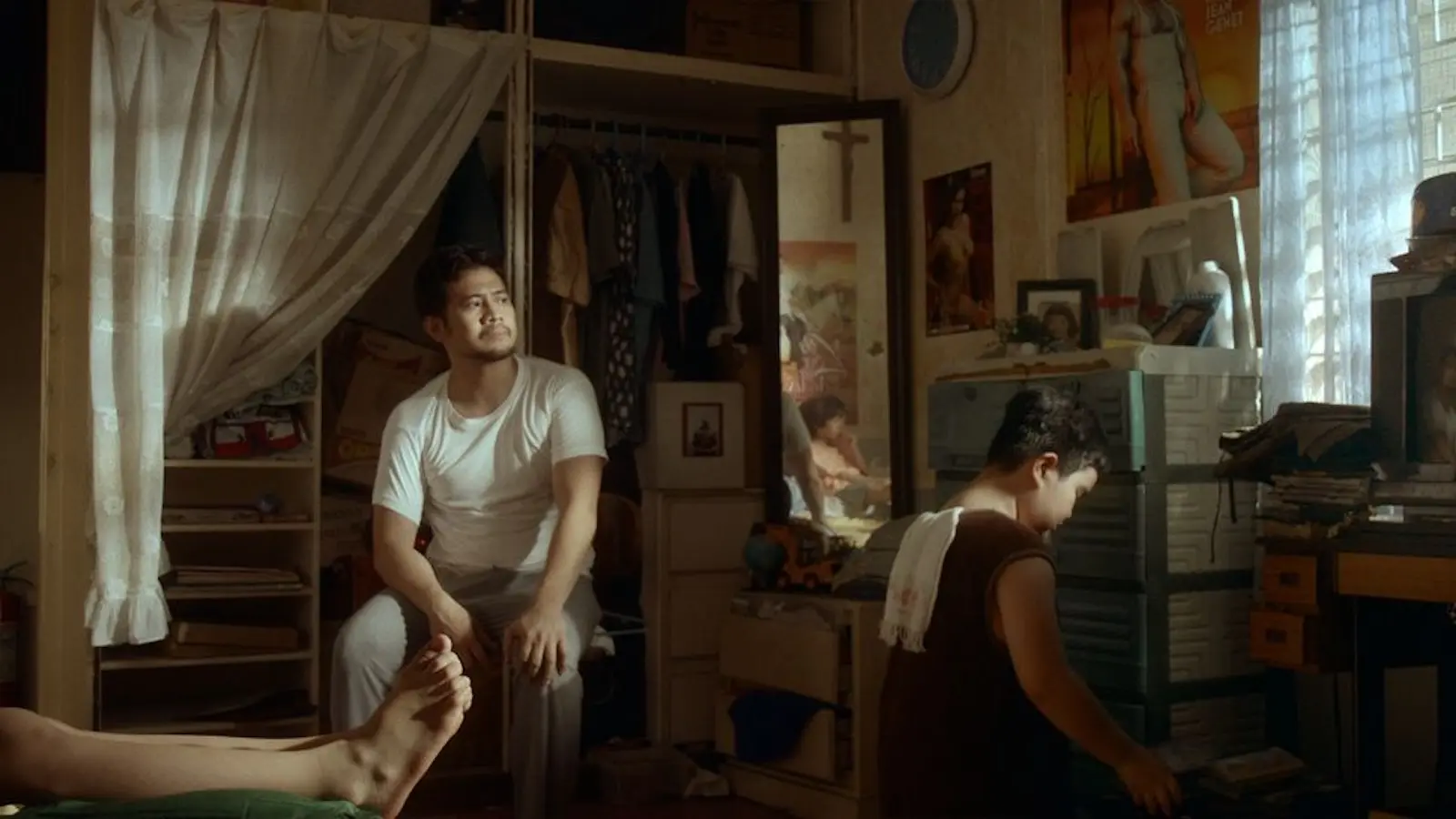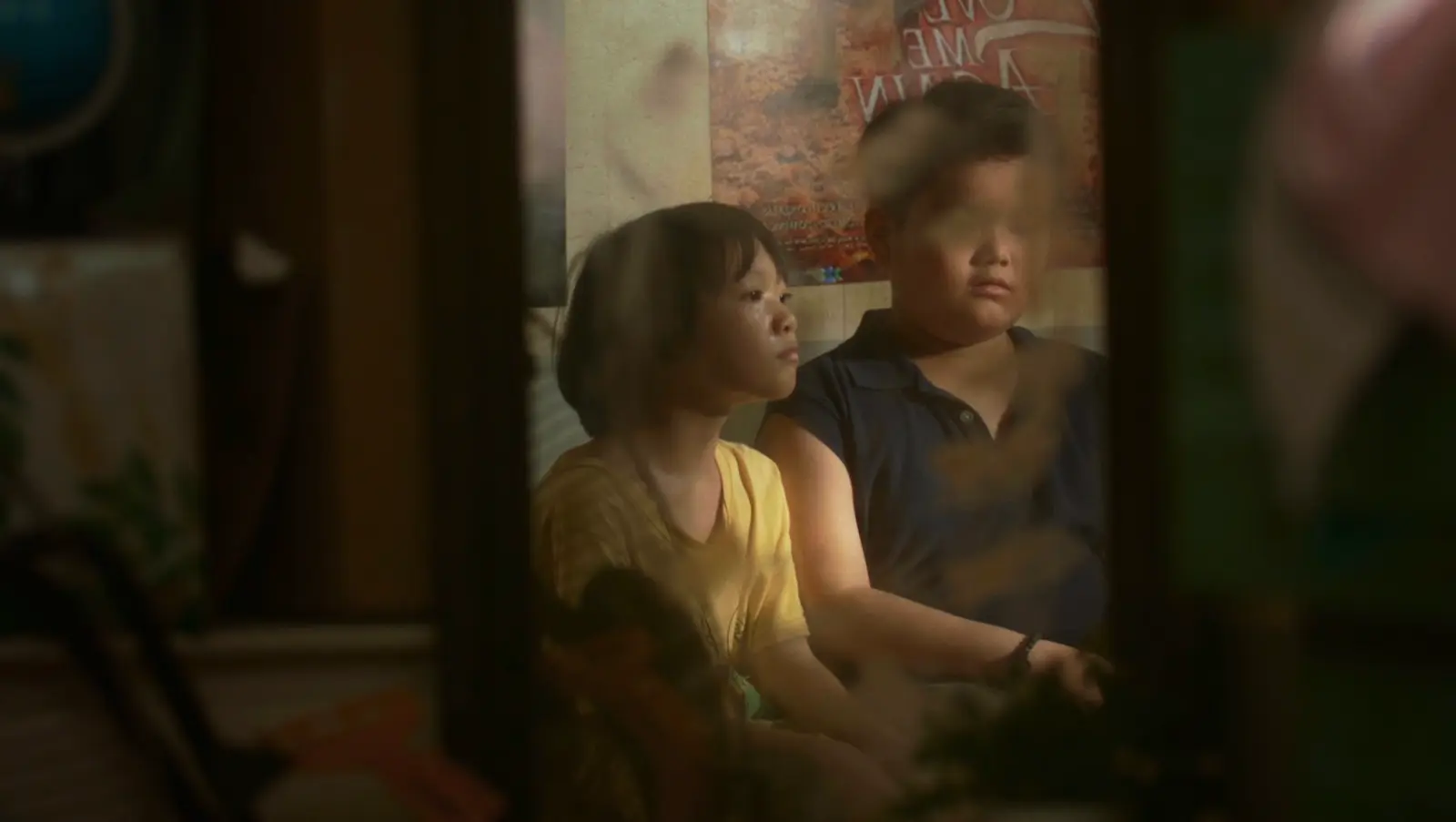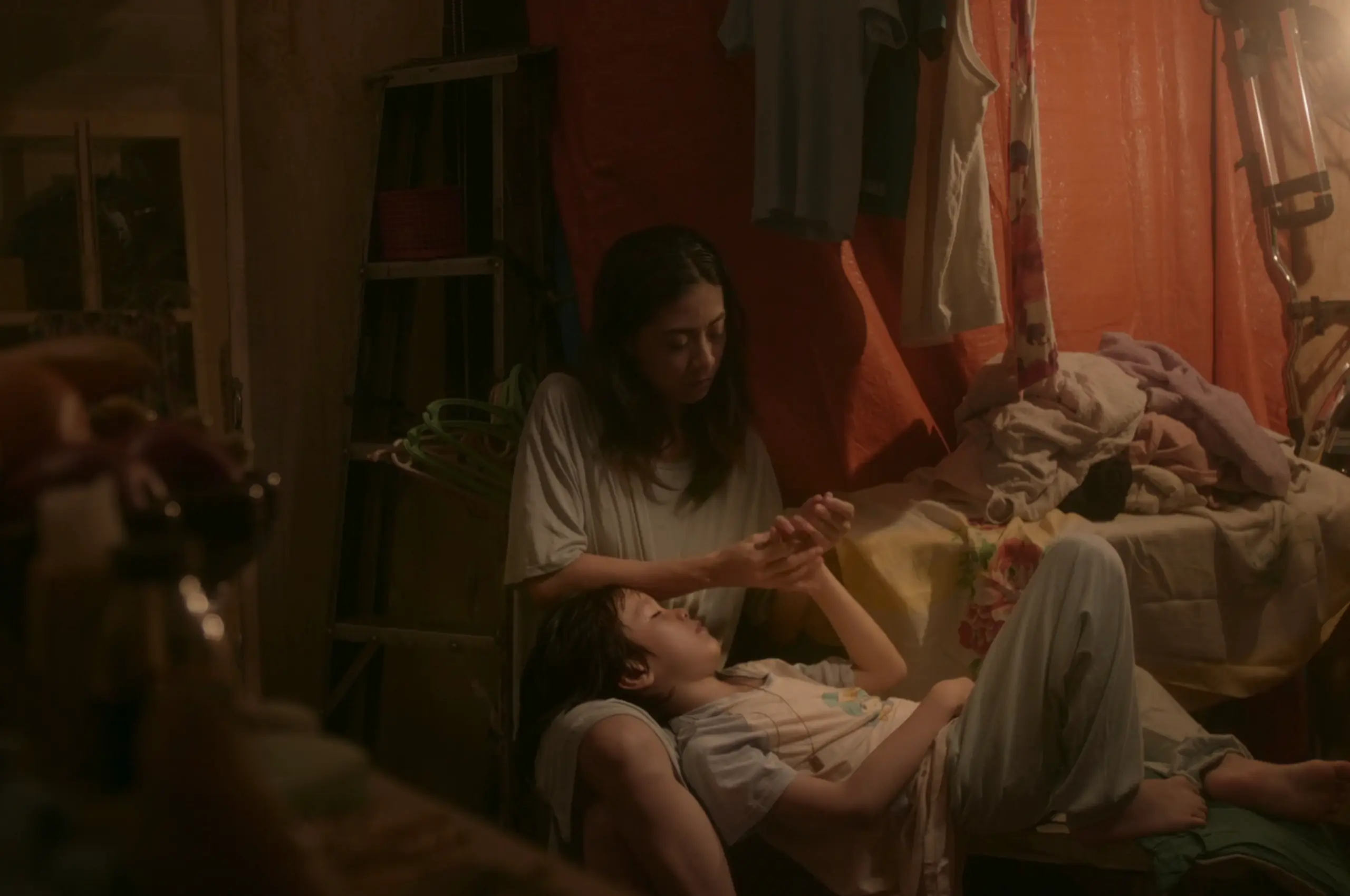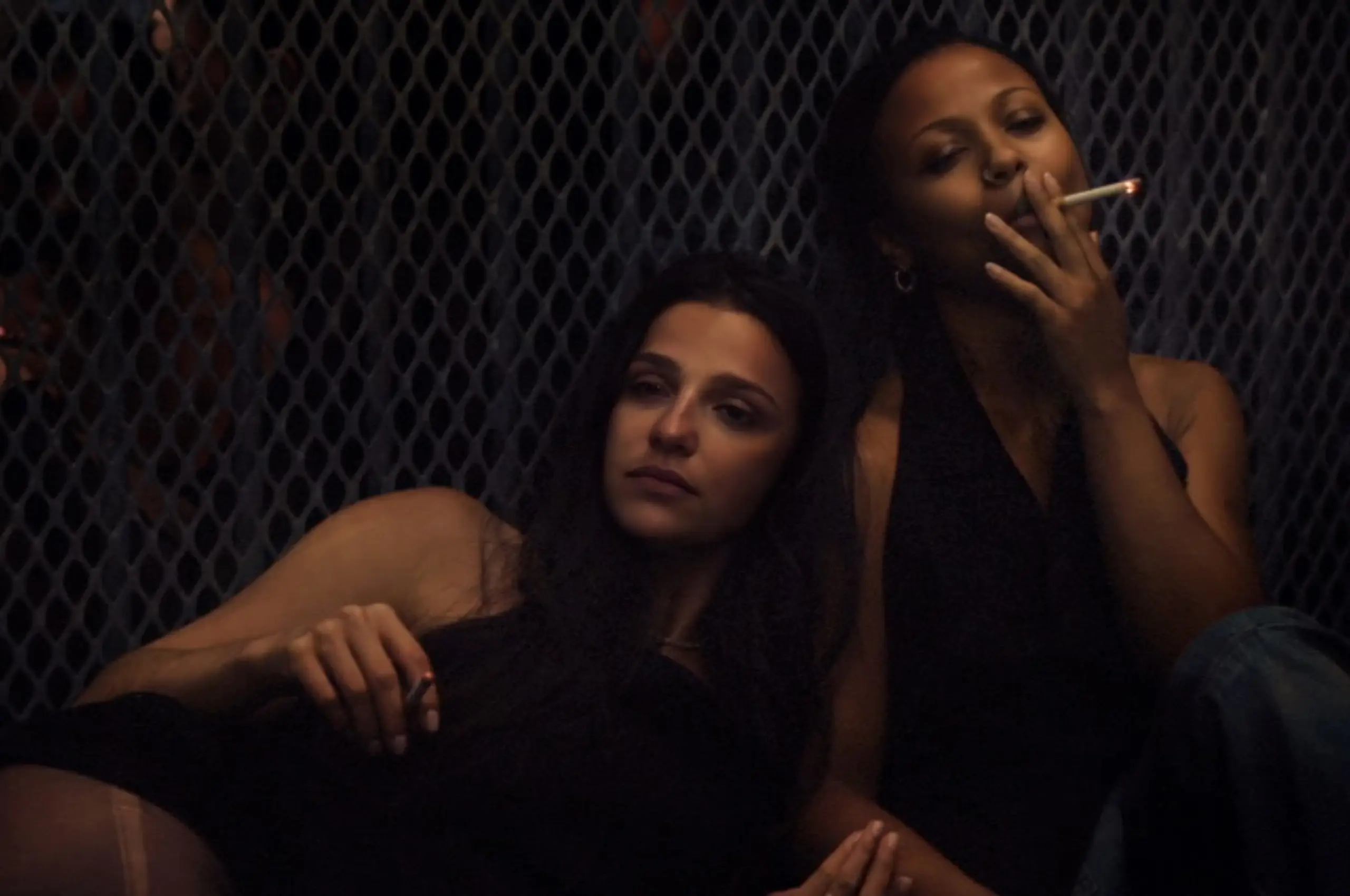JT Trinidad is the type of filmmaker who understands the importance of silence.
Their latest short film, Honey, My Love So Sweet, is filled with tender, hushed moments like a mother holding her child before bed, a lone actress mouthing the words of a song in a black-and-white film, or two children discovering their feelings about each other for the first time. Its warm, nostalgic cinematography, as well as its concise script that explores what it means to simultaneously come of age and navigate one’s sexuality, points to a filmmaker who is gradually becoming a strong new voice in cinematic storytelling.
Trinidad’s project will make its world debut at this year’s prestigious Locarno Film Festival. It is the sole Southeast Asian short film under the festival’s Pardi di Domani – Concorso Internazionale section, its category for short and medium length films.

The coming-of-age short film follows Life (Kian Co), an androgynous child who seeks temporary shelter with his mother, Martha (Mina Cruz) at the Times Theater in Manila, one of the last remaining pre-war cinemas in the Philippines. While there, Life forges a friendship with Gab (Marcus Timbas), the son of the theater’s projectionist, Marco (Manuel Tinio). As the two children play in the theater’s decaying skeleton, Life begins to develop feelings for their new friend’s father.
This is not the first time Trinidad’s work is receiving its flowers on the international festival circuit. Their short film, the river that never ends, competed at the QCinema International Film Festival in 2022, and brought home Best Southeast Asian Short Film at the 34th Singapore International Film Festival. It is now available to stream on The Criterion Collection.
Power in Experimentation

When I first spoke to Trinidad about their short, I was struck by the gentleness of their voice. They spoke in calm, assured tones, either to not make a scene in the café they were calling from or to rest their voice from a day of teaching Photography at the University of the Philippines (UP) Cebu. “It’s medyo stressful now,” Trinidad said when asked about how they were preparing for the trip to Switzerland for Locarno. Although Trinidad is no stranger to seeing their work do well at international film festivals, they admitted that this particular festival felt memorable. “When I received the invite for this one,” said Trinidad, “It was… as in, napasigaw ako sa gitna ng daan.”
Trinidad didn’t even know their short film was submitted to Locarno. It was Alemberg Ang, one of the producers and Trinidad’s former teacher at the UP Film Institute, who had sent it in. “I think this is a full circle moment for me,” said Trinidad, “because my favorite film in high school was Ang Sayaw ng Dalawang Kaliwang Paa [which Ang produced], and when I attended the screening, siya ‘yong Q&A.”
Trinidad has been tirelessly creating short films since 2020, and they don’t see themselves straying from the medium anytime soon. “I think I see short films differently,” they said. “People tell us that short films are your stepping stone to try out full-length films. But I believe that short films are their own medium. I find power in experimentation. It’s me answering the question, ‘How do I say something I want to say in a short period of time?’”
Young Love

With Honey, My Love So Sweet, Trinidad efficiently uses 20 minutes to navigate the purity of young, queer children falling in love. “When I’m watching films, parang feeling ko na mistranslated ‘yong innocence into naivety,” said Trinidad on their experience writing and directing the child-centered short. “Parang kapag films about children, lagi lang silang malang ala or lagi silang walang agency. But when I was a child, I remember I felt like I was so much smarter then compared to now.”
“Gusto ko lang i-include lahat ng true life experience ko when I was a child, as a queer child,” continued Trinidad. “Hindi ko pa alam kung ano pa ako. But I knew I was different.”
Trinidad hopes that audiences see Honey, My Love So Sweet and recognize how important it is to create a space for children to freely explore their feelings. “We need to allow children to be themselves,” said Trinidad. “Parang na-imagine ko lang ‘yong cinema, parang decaying na siya. But this place na decay sa akin or nabubulok is a place of refuge for these children. Hindi sila nag-question kung nagugustuhan sila sa isa’t-isa. Pwede lang umamin.”







